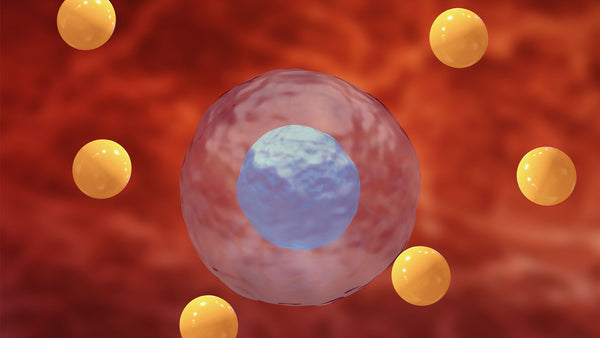Navigating Oxidative Stress in Athletics: Insights for Performance and Health

Oxidative stress, a concept that may sound complex, is essentially about the balance between good and bad elements in our bodies. Antioxidants, which are like the superheroes, fight against free radicals, the troublemakers causing damage. When there's an imbalance, with too many free radicals and not enough antioxidants, oxidative stress occurs. For athletes, this imbalance can be a big deal because it can lead to feelings of tiredness and muscle soreness, affecting their ability to perform well and recover quickly.
Researchers are diving deep into how different types of exercises affect oxidative stress in athletes. Some exercises, like high-intensity interval training (HIIT), might cause more oxidative stress than others. Understanding these effects can help athletes and their coaches tailor training programs to minimize stress while maximizing performance. Additionally, researchers are exploring whether certain factors like age, gender, and fitness level influence how the body responds to oxidative stress during exercise.
In the quest to combat oxidative stress, scientists are exploring the potential benefits of antioxidant supplements for athletes. These supplements, which come in the form of vitamins or other compounds, aim to boost the body's antioxidant defenses and reduce the harmful effects of free radicals produced during exercise. However, it's essential to note that while some studies show promising results, the effectiveness of antioxidant supplementation in preventing oxidative stress-related damage is still debated. Researchers are working to determine the optimal dosage and timing of supplementation to maximize benefits without causing harm.
Combatting Oxidative Stress:
- Incorporate a balanced diet rich in fruits, vegetables, and whole grains, which are high in antioxidants.
- Engage in regular physical activity, but vary your exercise routine to avoid overloading oxidative stress.
- Prioritize adequate sleep and stress management techniques to support overall health and reduce oxidative stress.
- Limit alcohol consumption and avoid smoking to minimize exposure to additional oxidative stressors.
Furthermore, researchers are investigating natural ways to enhance the body's antioxidant defenses through diet and lifestyle modifications. Consuming a diet rich in fruits, vegetables, and other antioxidant-rich foods can help bolster the body's defenses against oxidative stress. Additionally, practicing stress management techniques, getting enough sleep, and avoiding excessive alcohol and tobacco use can all contribute to maintaining a healthy balance between antioxidants and free radicals.
Supplements to Assist with Oxidative Stress:
- Vitamin C: A powerful antioxidant that helps neutralize free radicals and supports the immune system.
- Vitamin E: Protects cell membranes from oxidative damage and works synergistically with vitamin C.
- Coenzyme Q10 (CoQ10): Plays a crucial role in energy production within cells and acts as an antioxidant.
- Alpha-Lipoic Acid (ALA): Regenerates other antioxidants like vitamins C and E and supports cellular energy production.
- N-Acetyl Cysteine (NAC): Precursor to glutathione, the body's master antioxidant, and helps replenish glutathione levels.
By gaining a deeper understanding of oxidative stress and its impact on athletes, researchers aim to develop targeted strategies to optimize performance and promote long-term health. Through continued exploration of exercise physiology, nutritional interventions, and lifestyle modifications, athletes can better navigate the challenges of oxidative stress while striving for peak performance and well-being.






